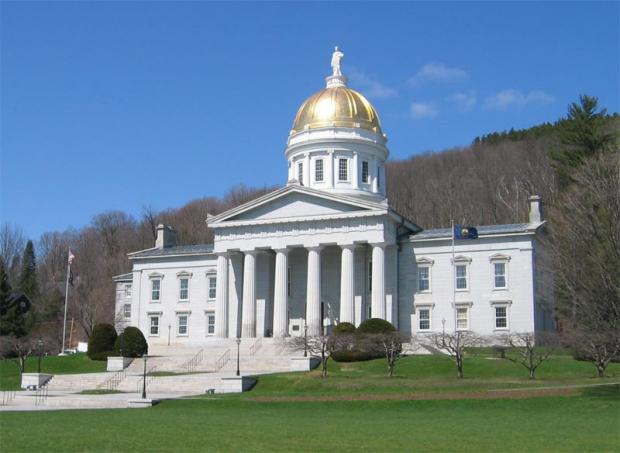Monday in Marijuana: Vermont Lightening Up, D.C. Gets It Right
The walls closing in around us
Last week, the Vermont State Senate passed a bill 17-12 that would legalize retail marijuana in effort to make Vermont the first state west of Colorado to take the leap into the wild green yonder. The District of Columbia fully decriminalized it, but that’s a different story and we’ll get there a little later on.
The edge of Vermont is five hours from Buffalo, but much closer to Boston, New York, Philadelphia; tens of millions of people. The bill will proceed to the Vermont House in March, where approval there will most likely clinch the bill as Governor Peter Shumlin praised the “courage” of the senate’s vote to “end the failed War on Drugs policy of marijuana prohibition.”
“I am proud that the Senate took lessons learned from states that have gone before us, asked the right questions, and passed an incredibly thoughtful, common-sense plan that will bring out of the shadows an activity that one in seven Vermonters engage in on a regular basis,” Shumlin wrote.
If approved, the law would go into effect on January 2, 2018. While the personal growing of marijuana and selling of edibles are not included in the bill, the plant itself will be available for sale up to a half-ounce, and up to an ounce will be legal to possess. Out-of-staters will be limited to purchases of a quarter-ounce.
Meanwhile, New York’s legalization bill, co-sponsored by Buffalo Assemblywoman Crystal Peoples-Stokes, has been referred to the senate’s finance committee. The state’s medical marijuana program is now only barely off the ground, and that law faced considerable opposition from both the senate and the governor, so unless a Vermont-sized sea change disrupts the status quo, New York’s path towards marijuana reform remains on a conservative track.
Still waiting for concrete news from our neighbors to the general north but the immediate west in Ontario, but a plan for marijuana legalization nationwide is expected this year. It’s conceivable—likely, even—that by the turn of the calendar into 2018, recreational marijuana will be legal along two of the state’s longest borders: Ontario and Vermont.
A year later, numbers from D.C. are in
The greatest impetus for marijuana reform has to do with the enormous social cost of low-level drug prosecution. That’s why Crystal Peoples-Stokes is involved, she’s agreed it’s a civil rights issue. That’s also why the first thing out of the Governor’s mouth has to do with the failed war on drugs.
We’ve done a few close looks at Buffalo marijuana arrests, and it doesn’t take long to discover an alarming, yet unsurprising trend. You could substitute “Buffalo” for “D.C.” in this quote and get the idea:
Marijuana enforcement in the District has historically been racially biased; as recently as 2013 African Americans in the District were eight times more likely to be arrested for marijuana possession than white people, comprising a shocking 91 percent of possession arrests, even though rates of marijuana use and sales are comparable across racial lines and African Americans comprise roughly half the District population.
The Washington Post took stock of D.C.’s numbers a year after its law into effect. That law fully decriminalized possession, leaving its sale illegal and its regulation scant. “As a result, marijuana possession arrests decreased a whopping 98 percent from 2014 to 2015, dropping from 1,840 to just 32,” Kaitlyn Boecker reported.
Which all prompts me to leave this here.

